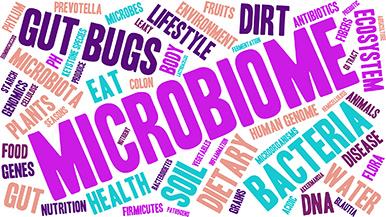Seminario - Biotecnologie e Bioscienze - Giovedì 4 novembre 2024, ore 16:30, edificio U3-BIOS, aula U3-08
Antonia Bruno, Department of Biotechnology and Biosciences - University of Milano-Bicocca
Abstract

Built environments are, for most of us, our natural habitat. The undeniable benefits of a city providing all the basic needs to a growing population showed longer-term and less obvious costs to human health: autoimmune and non-communicable diseases, as well as antimicrobial resistance, have reached unprecedented and alarming levels. Humans coevolved with microbes, and this long-lasting alliance is affected by the loss of connection with natural environments, misuse of antibiotics, and highly sanitized environments. Our aim is to direct the focus onto the microbial communities harbored by the built environments we live in. They represent the nexus for urban regeneration, which starts from a healthy environment.
Thanks to high-throughput DNA sequencing techniques, we were able to characterize the microbial communities of different built environments, spanning the ones linked to natural resources such as drinking water treatment plants and distribution systems, to those merely artificial such as buildings and hospitals.
Our results show that drinking water, despite a low biomass, is characterized by an astounding microbial biodiversity, mostly not cultivable: noteworthy, we reported the presence of DPANN Archaea superphylum, especially in groundwater, and the dominance of Patescibacteria from source to downstream water. The microbial biodiversity decreases when we move our focus to more artificial ecosystems, such as buildings, including those with a high selective pressure (i.e. hospitals). Integrating these data with human skin microbiome data, we understand the microbial dynamics in health and disease, aiming at answering the main question: how do we preserve beneficial bacteria and keep the pathogens at bay?
The significance of this research is inspiring guidelines and strategies for the urban regeneration of the cities of tomorrow, exploiting the invaluable role of microbial biodiversity.
Il seminario è APERTO a tutti.
per informazioni: infobtbs@unimib.it
cerca: #BrunoLab_BtBs , #BtBsSeminar , #BtBsUNIMIB , #BtBsSeminars